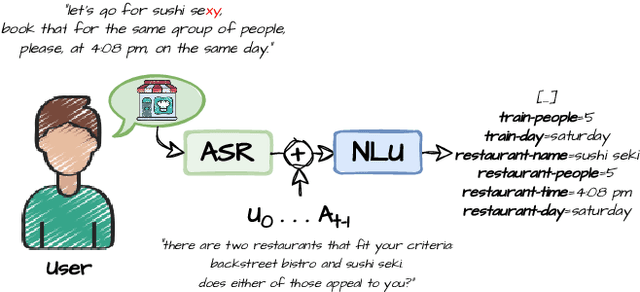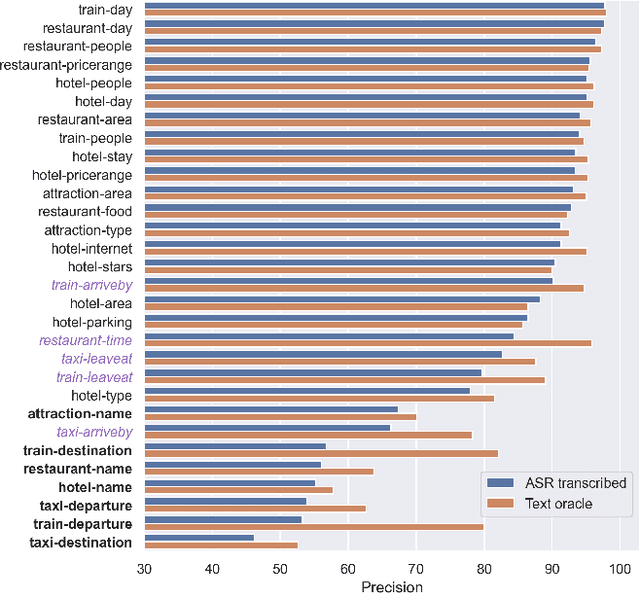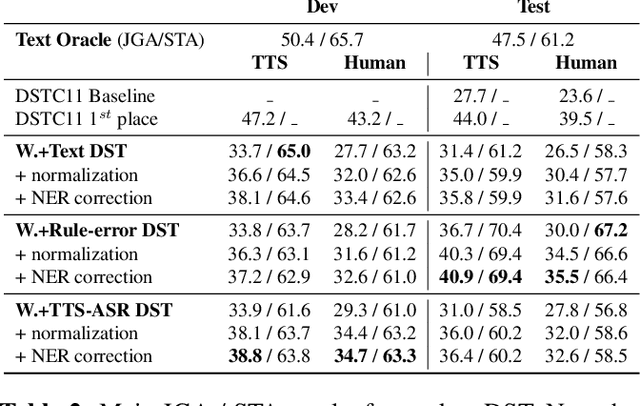Are cascade dialogue state tracking models speaking out of turn in spoken dialogues?
Paper and Code
Nov 03, 2023



In Task-Oriented Dialogue (TOD) systems, correctly updating the system's understanding of the user's needs is key to a smooth interaction. Traditionally TOD systems are composed of several modules that interact with one another. While each of these components is the focus of active research communities, their behavior in interaction can be overlooked. This paper proposes a comprehensive analysis of the errors of state of the art systems in complex settings such as Dialogue State Tracking which highly depends on the dialogue context. Based on spoken MultiWoz, we identify that errors on non-categorical slots' values are essential to address in order to bridge the gap between spoken and chat-based dialogue systems. We explore potential solutions to improve transcriptions and help dialogue state tracking generative models correct such errors.
 Add to Chrome
Add to Chrome Add to Firefox
Add to Firefox Add to Edge
Add to Edge